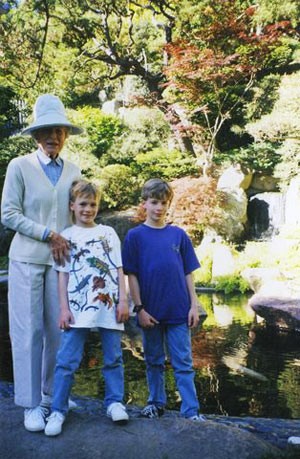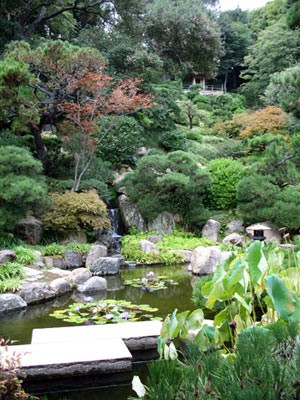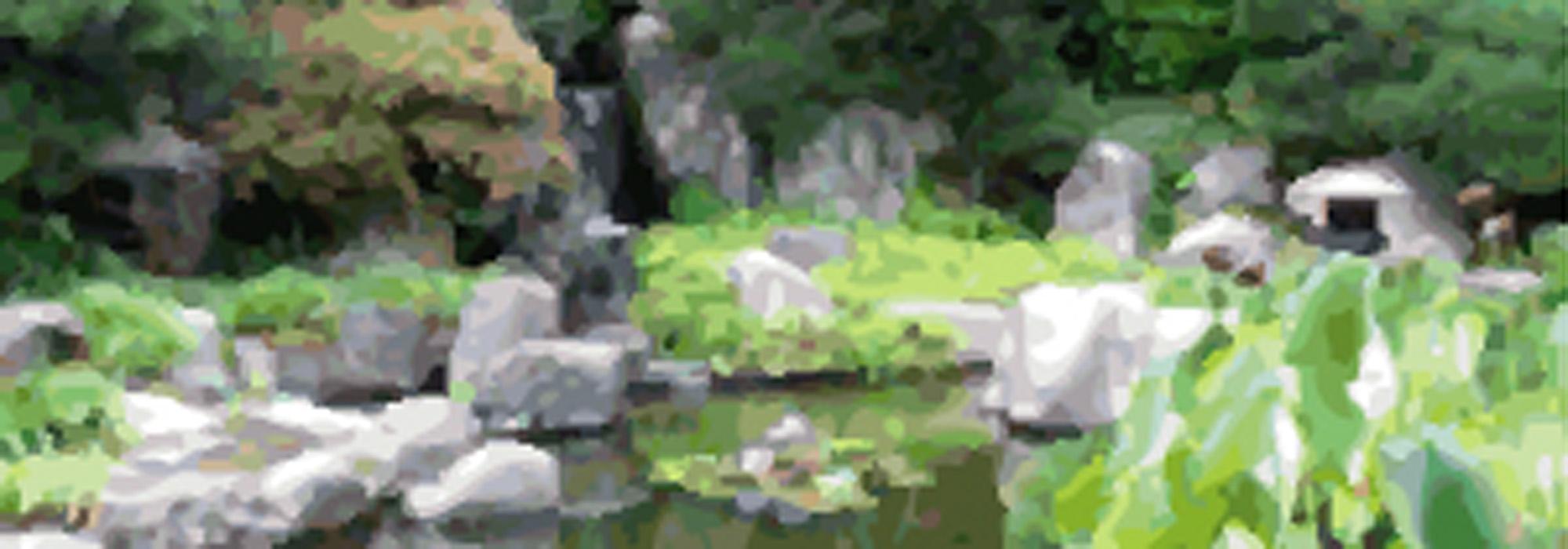It Takes One: Alex Caldwell
My name is Alex Caldwell, I'm 26 years old, and I live in Santa Monica, California. I am working to help save the Hannah Carter Japanese Garden, and it is my first experience with landscape stewardship. I think it is incredibly important that in a world increasingly concerned with the value of an investment portfolio that we make every effort to remember the value of nature, art, and beauty and the importance of preserving it for the future. I hope that 100 years from now, future generations look back on us and thank us for waking up and protecting the planet rather than shame us for continuing to damage it.
How would you define a cultural landscape?
A cultural landscape, to me, is a plot on the Earth that is significant to us as humans. They can represent our history or our craftsmanship, and they can be symbols for peace or love whatever human emotions were put into the Earth as a human worked it. Cultural landscapes help preserve our history and connect us with the Earth. They give us areas to relax, places of solace, and opportunities to reflect. Particularly in urban areas like Los Angeles where it seems like the concrete just sprawls endlessly across the terrain, a cultural landscape can provide a nearby escape to another world.
Why did you get involved in the effort to save the Hannah Carter Japanese Garden?
I got involved with the garden in part because it is my grandmother's name on the front gate, and in part because it was the right thing to do. UCLA would rather sell this whole plot to a developer for a paltry increase in their bank account than preserve it, a garden that has been called one of the best residential Japanese gardens in the Western hemisphere. This, of course, is after promising the garden's donors that it would be kept open in perpetuity. The whole situation, to me, stands for everything that is wrong in the world, and I believe that what we are doing is not only saving a truly remarkable cultural landscape, but also standing up for what is right.

How did your understanding of this landscape change as a result of your advocacy efforts?
My experience has really taught me how fragile some of these landscapes can be and how much care goes into maintaining them properly. Nature can be violent, things break, things die, and it takes a lot of human energy to counteract that. The two gardeners tasked with taking care of the landscape I'm trying to save work five days a week on it, and even that isn't enough! Moreover, it takes money. If a tree branch falls and breaks a structural element, it can be extremely expensive to repair. This is why it's equally important to establish and maintain endowments for large landscapes. These places can't take care of themselves! It takes tremendous human effort to conceive, construct, and maintain a landscape that will last the test of time.
Did the understanding of others change as well? If so, how?
I've told the story of this garden countless times, and I feel like it changes people's understanding of landscapes all the time. There are always going to be people with money who want to tear down parks and gardens and any kind of cultural landscape if they feel like it will make them a couple dollars in the short term. It's sad, but it will always be true. I think the story of this garden has helped open some people's eyes to the importance of standing up against those people. If we don't do it now, we may never have the opportunity to do it again.
What is the message that you would like to give our readers that may inspire them to make a difference?
If you ever have the opportunity to help out with a cultural landscape cause, jump on it! Even if it's just getting invited to one meeting, go to it! You'll probably find yourself wanting to go to another! Even if you only have time to help in a limited capacity, every minute you spend will make your own life feel richer, and every threatened landscape is dependent on every one of those minutes. If you're not sure how you can help, ask! There is always room for more help, especially when it comes to spreading the word to the public. Getting on board with a landscape project is such a great way to make a difference for the future; I can't recommend it enough.








